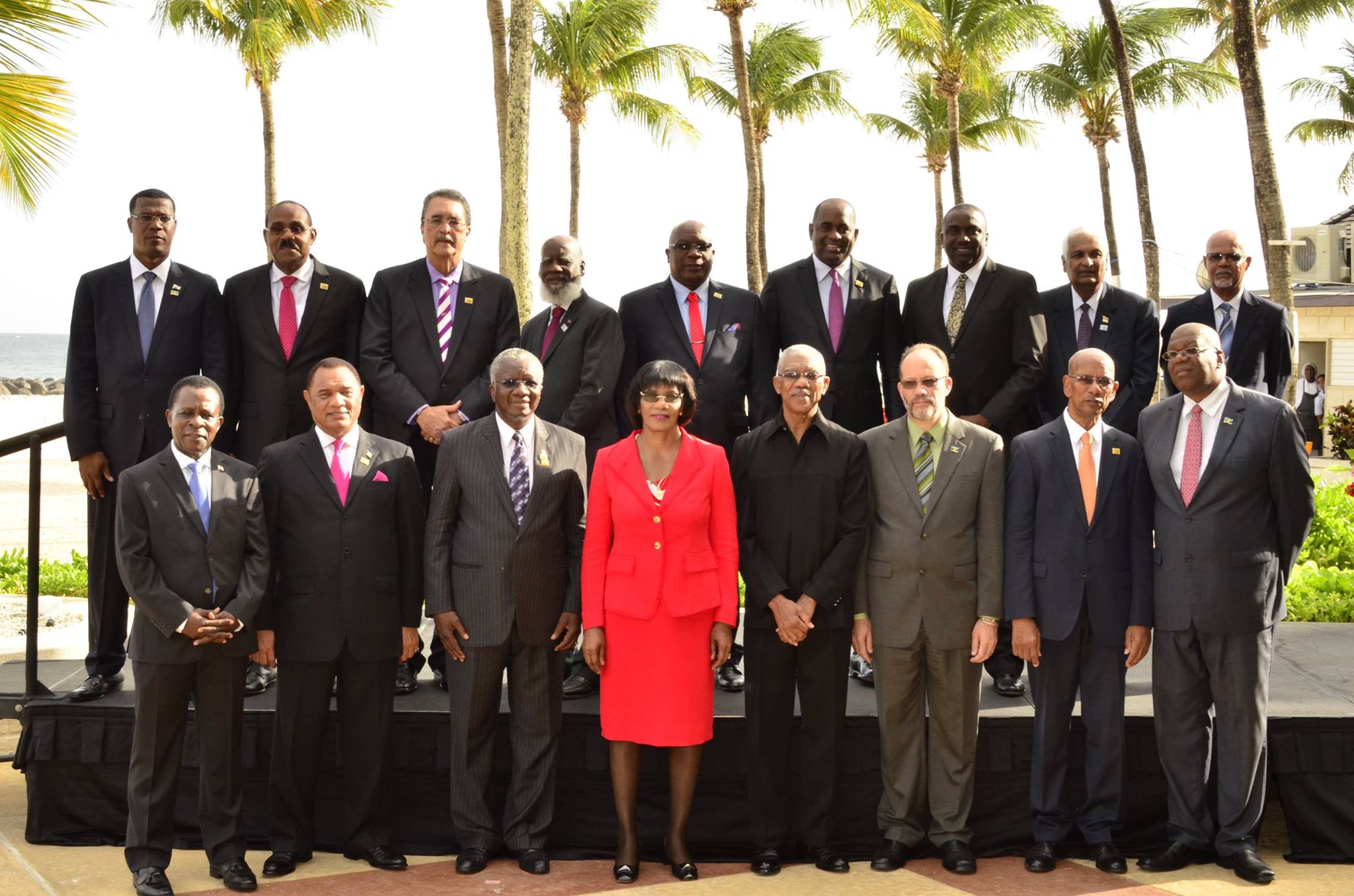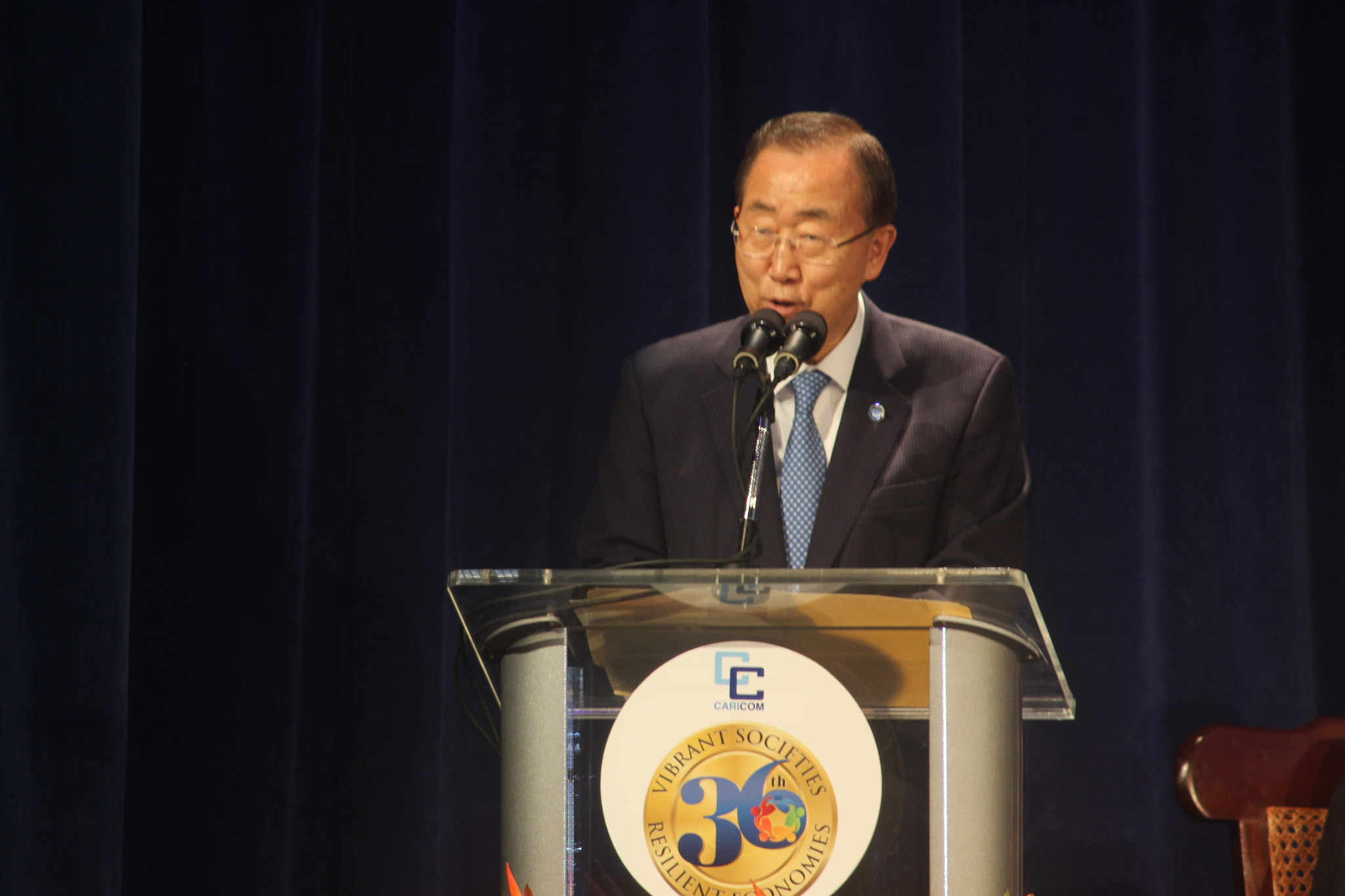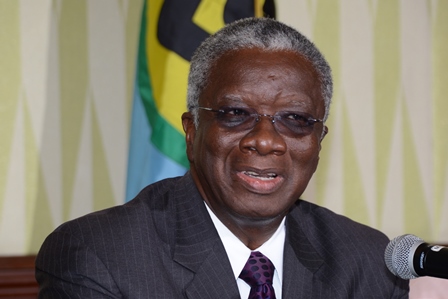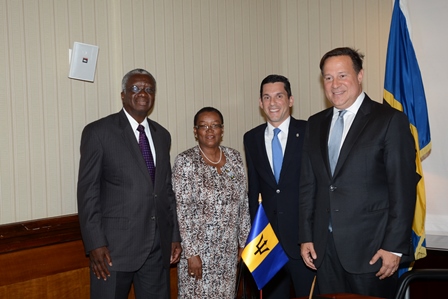By Peter Richards BRIDGETOWN, Barbados, Jul 1, CMC – Caribbean Community (CARICOM) leaders gather in barbados from Thursday for their annual summit with recurrent issues ranging from the impact of the ongoing global economic crisis to climate change dominating the three day event.
The regional leaders will discuss developments surrounding the CARICOM Single Market and Economy (CSME) that allows for free movement of goods, services, labour and skills across the 15-member grouping, but which has come under severe criticism from a regional population still questioning the sincerity of their leaders to fully implement the initiative.
The summit, which will be held under theme “Vibrant Societies, Resilient Economies,” will also focus on issues such as energy, in the context of a proposal for a new institution to lead the region’s energy agenda and the possible election of a candidate for the position of Commonwealth Secretary General after three CARICOM countries submitted names of candidates for the post.
“I think the theme was needed for this upcoming conference because you have a lot of naysayers, prophets of doom, because this institution may not be performing optimally …or performing as some people would wish, use that to indicate the entire regional integration movement and to give the impression that everything is falling apart.
“The truth is we are never going to get to a stage where everything in the region and where everything in the regional integration movement is functioning perfectly,” said Barbados Prime Minister Freundel Stuart, who takes over the chairmanship of the regional grouping from his Bahamas counterpart, Perry Christie.
But perhaps the most contentious issue facing the leaders, some like Guyana’s President David Granger, St. Kitts-Nevis Prime Minister Dr. Timothy Harris and Montserrat Premier Donaldson Romeo attending their first regional summit, will be the ongoing situation in the Dominica Republic, where thousand sf people of Haitian descent are being deported under a controversial Constitutional Court ruling.
CARICOM Secretary General Irwin La Rocque has brushed aside criticisms that the regional countries have been slow to express their outrage at the situation unlike the international community that has likened the deportation to a major human rights abuse.
“I disagree, I fundamentally disagree, “La Rocque told the Caribbean Media Corporation (CMC), confirming that the issue will be among agenda items, adding “not everything you do is in the public limelight.
“The region has been engaging (the Dominican Republic issue). If one goes back to the CELAC (The Community of Latin American and Caribbean States) summit in Havana, there was no publicity about it. It was a major issue on the agenda there from CARICOM in the presence of all of Latin America.
“It was again raised recently with the European Union…the committee as adopted a certain stance towards the Dominican Republic that is well known and we are seeing the results of this,” he added.
The Dominican Republic gave a deadline of 17 June 2015 for people of Haitian descent to apply for legal residency. Hundreds of people, mostly low-wage workers from neighbouring Haiti, waited in line for hours to submit residency applications under a registration initiative that began last June.
The Dominican Republic has said migrants who can prove they entered the country before October 2011 can qualify for legal residency. Otherwise they could face deportation.
CARICOM, which has already suspended talks with the Dominican Republic on possible membership of the regional integration movement, last week, issued a statement calling on Santo Domingo to end its deportation policy noting that the people expelled to Haiti, “a country of which they are not citizens and with which many have neither family nor language links, was an additional cause for concern”.
Another matter of concern to the regional leaders is the recent “flare up” between Guyana and Venezuela after Caracas declared that the “Arbitral award of 1899, which definitively settled the boundary between the two countries, is null and void”.
Like a recurring decimal, CARICOM, has, at the end of their annual summits, issued a communiqué re-affirming Guyana’s rights to its territory and The Barbados summit is not expected to be different given that the grouping has already signalled its position by re-stating “its firm, long-standing and continued support for the maintenance of the sovereignty and territorial integrity of Guyana and for the unhindered economic and social development of all of Guyana.
“In this regard, the Community, once again, expresses its hope for an early resolution of the controversy which has arisen as a result of Venezuela's contention that the Arbitral award of 1899, which definitively settled the boundary between the two countries, is null and void,” CARICOM said.
Georgetown has said it “is extremely perplexed” by the decision of the Venezuela government, noting that the premise of Caracas’s objections ‘continues to be its spurious and illegal claim to Guyana’s territory. ‘The land boundary between Guyana and Venezuela was permanently and definitively delimited on October 3, 1899 pursuant to the Treaty of Washington of February 2, 1897. The view expressed in the Communiqué under reference that there is a territorial dispute “inherited from British colonialism” is therefore patently false,” the Ministry of Foreign Affairs said.
The Guyana-Venezuela issue is likely to be raised also with United Nations Secretary General Ban Ki-Moon during what CARICOM has billed a “High-Level Strategic Dialogue” with regional leaders on Thursday morning.
“It will provide an opportunity for CARICOM Heads of Government to engage the UN Secretary-General on the Community’s sustainable development agenda as attention now pivots around three imminent international conferences: The Third International Conference on Financing for Development; the UN Summit on the Post-2015 Development Agenda; and the UN Framework Convention on Climate Change, COP 21. The Conferences have significant bearing on the future global agenda and the development of the Community,” CARICOM said.
Apart from the UN Secretary General, the regional leaders will also hold talks with outgoing Commonwealth Secretary-General, Kamalesh Sharma, and President of the Republic of Panama, Juan Carlos Varela Rodrίguez.
The decision by the European Union to blacklist a number of Caribbean countries, referring to them as “tax havens” has already brought regional countries closer together, despite latest efforts by the head of the Delegation of the European Union to Barbados and the Eastern Caribbean, Ambassador Mikael Barfod, to downplay the matter.
Barfod has told the 13 Caribbean countries that the decision to release the list of international tax havens should not be regarded as an attempt to blacklist any country.
He said “the criteria may not be blacklisting, in a traditional sense, as it is very often perceived.
“It could even show what a specific EU member state believes are low tax rates or a harmful tax regime…that is something that these countries need to find out,” he added.
But Antigua and Barbuda Prime Minister Gaston Browne, whose country is among the 13 Caribbean nations listed by Europe, said the list is flawed and even baffling given that the official regulators, including the Global Forum, in Europe had found the Caribbean countries to be very compliant.
“There was no prior warning, and we note too that the countries in Europe with whom we have significant trade relations, the United Kingdom as an example, Germany, France, they did not make any such assessment.
“However there are some other countries with whom we have little relations and I believe too they have little knowledge of the Caribbean, they have deemed us to be uncooperative …and they have also classified us as tax havens.
“But the issue is whether or not they have any such locus and we are of the view that they do not have any such locus,” Browne said, adding “clearly these justifications are not only unjust; these countries have no locus to make any such classification”.
La Rocque said that the summit here would discuss a “number of very important issues” noting that the region as part of the global community is preparing for meetings including those on climate change, the post 2015 development agenda as well as financing for development.
“All of these issues will be discussed we are fortunate to have with us, the Secretary General of the United Nations, Ban Ki-Moon and we will enter into a dialogue with him on these very issues in terms of our preparation”.
At Thursday’s ceremonial opening, addresses will come from at least seven leaders including the incoming chairman and the newly elected or re-elected heads of governments in Guyana, Montserrat, St. Kitts-Nevis, Suriname and Dominica.
CMC/pr/ir/2015






